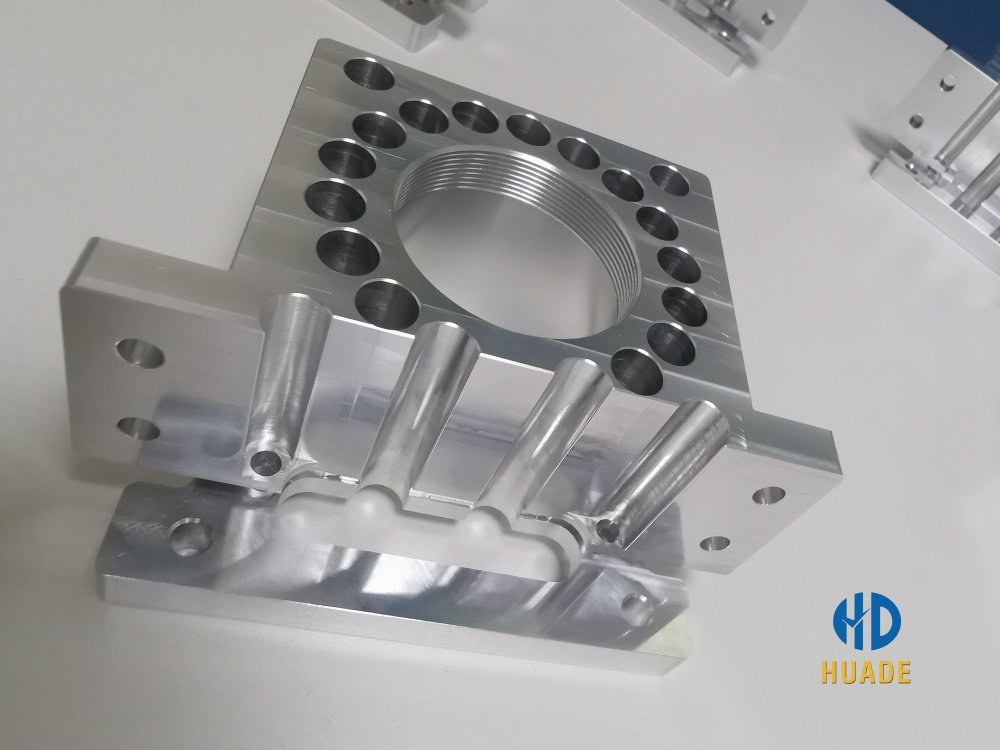Why Aluminum Precision Machining Matters
Aluminum precision machining has become a cornerstone of modern manufacturing due to its balance of lightweight properties, high strength, and excellent corrosion resistance. Whether used in aerospace structures, automotive components, or consumer electronics, precision machining of aluminum ensures that critical parts meet exact tolerances. In today’s manufacturing landscape, industries also demand expertise in alloy steel screw machining and specialized aluminum Swiss screw machined parts, highlighting the need for advanced machining capabilities across multiple materials.
The Fundamentals of Aluminum Precision Machining
Aluminum is widely favored in CNC machining because it combines machinability with performance. Its relatively soft nature compared to steel allows for faster cutting speeds, reducing cycle times and improving overall productivity. At the same time, aluminum alloys can deliver high structural integrity when designed and machined properly.
In aluminum precision machining, dimensional tolerances often reach ±0.01 mm, making it ideal for industries requiring complex geometries. From aerospace brackets to medical housings, aluminum parts must maintain both strength and repeatability, which can only be achieved with optimized cutting parameters and well-chosen tooling strategies.
This video demonstrates advanced aluminum precision machining techniques for aerospace components.
Tooling Considerations for Aluminum Machining
To achieve consistent results, the right tooling is essential:
- Cutting Tools: Carbide inserts with sharp cutting edges reduce built-up edge formation.
- Coatings: Non-stick coatings such as TiB2 minimize material adhesion, crucial when machining aluminum alloys.
- Coolant Application: Proper lubrication ensures surface finish quality and prevents tool wear.
These details play an important role in delivering reliable outcomes, especially when transitioning between aluminum precision machining and more demanding tasks like alloy steel screw machining.
Alloy Steel Screw Machining: A Different Challenge
While aluminum is lightweight and easy to machine, alloy steels present a contrasting challenge. Alloy steel screw machining requires higher cutting forces, stricter control of heat generation, and stronger tooling. The difference in machinability between aluminum and alloy steels highlights why manufacturing facilities must maintain expertise across both.
Key considerations in alloy steel machining include:
- Heat Resistance: Alloy steels often harden during cutting, requiring advanced tool coatings.
- Surface Integrity: Maintaining fatigue resistance is crucial for screws used in load-bearing assemblies.
- Cycle Time: Slower feeds and speeds compared to aluminum, but with greater material durability.
Integrating processes for both aluminum and steel within one facility allows manufacturers to meet diverse client needs in industries ranging from automotive drivetrains to heavy machinery.
The Role of Swiss Machining in Aluminum Components
Another area where machining evolves is in aluminum Swiss screw machined parts. Swiss machining, originally developed for watchmaking, is now widely used in industries requiring ultra-precise, small-diameter components.
For aluminum applications, Swiss machines allow:
- Exceptional Precision: Parts with diameters as small as 1 mm can be machined with high repeatability.
- Long, Thin Geometries: Swiss machining provides support close to the cutting zone, reducing deflection.
- High Productivity: Multiple tool operations occur simultaneously, ideal for large batch production.
These advantages make aluminum Swiss screw machined parts indispensable in electronics, medical implants, and aerospace fasteners. When combined with alloy steel machining, manufacturers can supply a wide spectrum of miniature yet critical components.

Balancing Material Properties with Machining Strategy
One of the biggest challenges in modern CNC manufacturing is balancing the unique properties of each material. Aluminum requires strategies to prevent chip adhesion, while steel demands strategies to manage hardness. By integrating lessons from aluminum precision machining, alloy steel screw machining, and Swiss machining, manufacturers can optimize productivity without sacrificing quality.
Some proven strategies include:
- Adaptive Toolpaths: Optimized CAM programming reduces tool load in complex geometries.
- Hybrid Machining Centers: Multi-axis CNC machines capable of switching between aluminum and steel in the same setup.
- Prototyping to Production: Rapid prototyping of aluminum components, followed by steel variants for functional testing.
Industry Applications and Case Examples
The value of aluminum precision machining extends across industries:
- Aerospace: Lightweight brackets and housings with tight tolerances.
- Medical Devices: Surgical tools and implant components made from both aluminum and stainless steel.
- Automotive: Alloy steel screws in drivetrains, combined with aluminum housings for weight reduction.
- Electronics: Swiss screw machined parts for connectors, pins, and miniature housings.
These examples demonstrate how diverse material strategies support industries where performance, cost, and safety intersect.
Challenges and Future Outlook
As demand for lightweight yet durable materials grows, machining strategies continue to evolve:
- Automation: Robotic handling of aluminum parts to reduce cycle times.
- AI in Machining: Predictive analytics for tool wear and quality assurance.
- Advanced Materials: Integration of hybrid aluminum alloys that require new machining strategies.
These developments suggest that aluminum precision machining will remain critical while expanding into new high-tech applications.
Uniting Precision and Versatility
Aluminum precision machining, alloy steel screw machining, and aluminum Swiss screw machined parts illustrate how modern CNC manufacturing adapts to industry demands. Each material brings unique challenges, but together they form a comprehensive portfolio of machining solutions.
At Dongguan Huade Precision Manufacturing Co., Ltd., expertise across these areas ensures that clients receive reliable prototypes and production parts with consistent accuracy. For engineers, designers, and procurement managers, understanding these machining strategies is essential for making informed decisions that balance performance, cost, and manufacturability.
